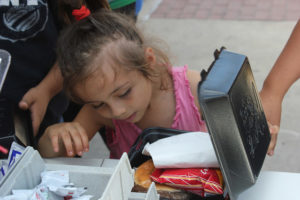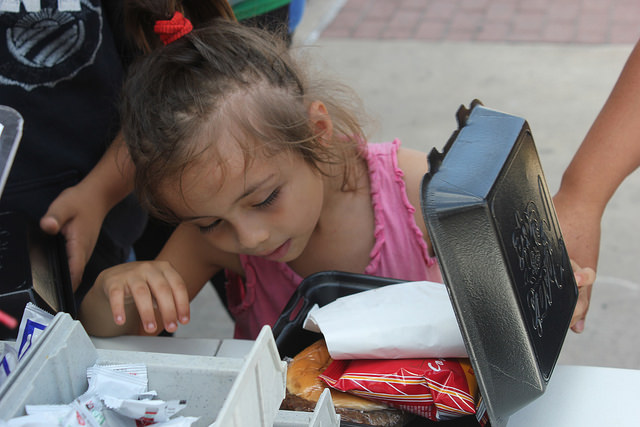 In 2010, I was the director of a Women, Infants, and Children’s Program, (WIC) in a rural North Carolina county. Prior to that, I worked in Santa Anna, California as a WIC Nutritionist and Breastfeeding Coordinator, for the largest WIC Program in the country. During that time in my career, I enjoyed teaching pregnant women, new fathers, their babies and children from birth to 5 years old. I realized very quickly, what I said to parents affected how well they feed themselves, their babies and children. WIC participants have access to a number of resources, including health screening, nutrition, and breastfeeding counseling, immunization screening and referral, substance abuse referrals, and more.
In 2010, I was the director of a Women, Infants, and Children’s Program, (WIC) in a rural North Carolina county. Prior to that, I worked in Santa Anna, California as a WIC Nutritionist and Breastfeeding Coordinator, for the largest WIC Program in the country. During that time in my career, I enjoyed teaching pregnant women, new fathers, their babies and children from birth to 5 years old. I realized very quickly, what I said to parents affected how well they feed themselves, their babies and children. WIC participants have access to a number of resources, including health screening, nutrition, and breastfeeding counseling, immunization screening and referral, substance abuse referrals, and more.
There are an estimated 7 million people who received WIC benefits nationally. In North Carolina, the WIC Program serves more than 270,000 women, infants, and children each month. Children have always been the largest category of WIC participants. The program’s mission is carried out by providing nutritious foods to supplement diets, nutrition education (including breastfeeding promotion and support), and referrals to health and other social services.
During the recent government shutdown, I heard stories of women deciding to make old school homemade infant formula concoctions for their babies, which is a dangerous and unsafe alternative to the commercial formula given to WIC participants. Complications caused by the homemade formula could cause undernourishment, toxicity and other symptoms lead up to infant death, according to doctors and registered dietitians. Struggle is often at the root of ill conceived and dangerous solutions.
The largest food program is the Supplemental Nutrition Assistance Program (SNAP) which provides food benefits to a monthly average of close to 2,000,000 people in North Carolina. This program was created to help people with minimal income have the ability to feed their families. Food and Nutrition Services work with state agencies, nutrition educators, neighborhood and faith-based organizations to ensure that those eligible for nutrition assistance get that assistance. Across the United States, close to 40 million people rely on the food stamp program. During the December 22, 2018 – January 2019 US federal government shutdown, food stamp recipients were given their benefits early advised to stretch their ebt funds as long as humanly possible. It was a frightening time for government employees and the hungry.
The U.S. Department of Agriculture oversees the process of all major Food and Nutrition Service Programs (FNS) in this country. These include the: Supplemental Nutrition Assistance Program (SNAP); the Special Supplemental Nutrition Program for Women, Infants and Children (WIC); Child Nutrition Programs (national school lunch, school breakfast, Child and adult care, summer food service and special milk); and Food Distribution Programs (schools, emergency food assistance, Indian Reservations, commodity supplemental, nutrition for the elderly, and charitable institutions).
Today, as a part of a dietetic internship program, I not only learn about our country’s history with Food and Nutrition Services and other state and federal programs, I also immerse myself in being trained by the nation’s best registered dietitians, culinary chefs, nutrition service directors, and other medical professionals and clinicians across the country in various departments of food, nutrition and dietetics field. My goal is to be a practitioner with a toolbox of ways to help folks who are experiencing food insecurities.
Since government shutdowns seem to be the political way to handle political disagreements, I wonder what are the participants of these programs are to do when the government is in limbo? What are people with no WIC or Food Stamps to do in order to help themselves and their families? What other options are families to seek? What about the future of employees in these programs? These are important questions.
If you or anyone you know finds themselves unsure of how to feed themselves or their families, here is a list of a few links to help with food and supplemental assistance in North Carolina.
Food Programs & Pregnancy Care Centers, Mothers Milk Bank Resources and More:
https://www.fns.usda.gov/wic/wic-benefits-and-services
http://salempregnancy.org/resources/
https://www.wakemed.org/mothers-milk-bank-receiving-milk
https://www.fns.usda.gov/snap/supplemental-nutrition-assistance-program-snap
https://www.bchfamily.org/help/greatervision
https://www.salvationarmyusa.org/usn/cure-hunger/
https://www.freshebt.com/tips-make-ebt-food-stamp-benefits-last-longer/
ShLanda Burton, Dietetic Intern


There are no comments
Add yours